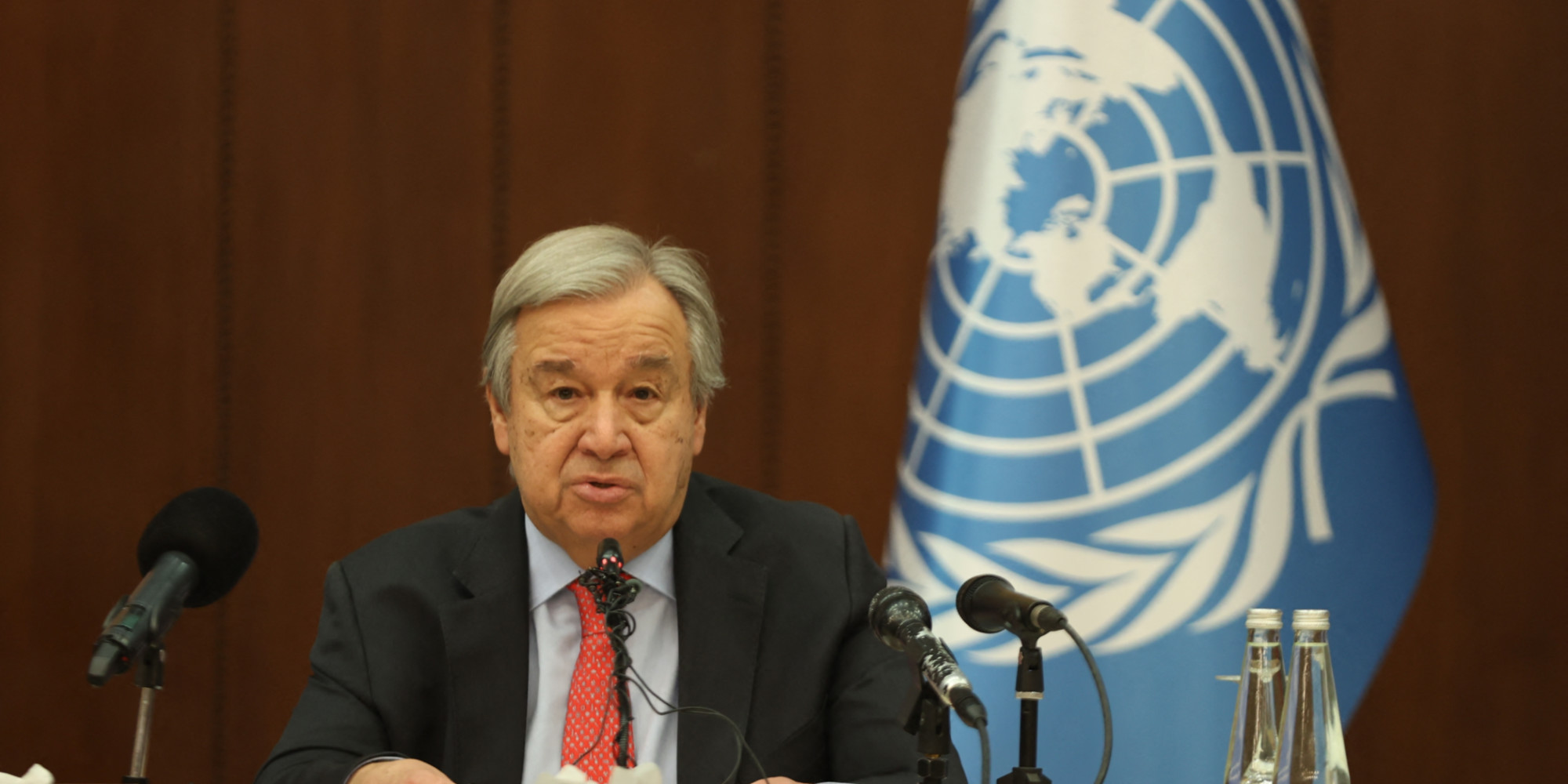Europe 1 with AFP 14:36 p.m., March 20, 2023
On Monday, faced with global warming and the consequences it has for the planet, the UN Secretary-General called on rich countries to advance their carbon neutrality goals "as close as possible to 2040", compared to 2050 today in general. This in order to "defuse the climate bomb".The UN secretary-general on Monday called on rich countries to advance their carbon neutrality goals "as close as possible to 2040", against 2050 today in general, to "defuse the climate bomb". "Humanity walks on a thin layer of ice and this ice melts fast," Guterres said in a video message on the occasion of the publication of the latest report of the climate experts convened by the UN (IPCC), which he described as "a survival guide for humanity".
>> READ ALSO - With global warming, will drought become the norm?
Limiting warming to +1.5°C
The Secretary General believes that the world can still limit global warming to +1.5°C compared to the pre-industrial era but that this "requires a decisive breakthrough in climate action", "by all countries and all sectors". While "all actors need to press the fast-forward button," he acknowledges that developing countries are both less responsible for warming and less able to accelerate their transition.
First targeted, developed countries that "must commit to achieving carbon neutrality as close as possible to 2040, a limit they should all intend to reach". Today, most developed countries that have made such commitments aim for carbon neutrality by 2050, although some are more ambitious, such as Finland (2035), or Germany and Sweden (2045). As for emerging economies, their leaders "must commit to achieving carbon neutrality as close as possible to 2050," Guterres said, without naming names. Large emerging markets have more distant targets, particularly China (2060) and India (2070).
The G20, responsible for 80% of global GHG emissions
The UN Secretary-General, who will organize a summit for climate action in September, has also once again stressed the major role of the G20, responsible for 80% of global greenhouse gas emissions and whose "all members" must "come together in a common effort", "to make carbon neutrality a reality by 2050". With this in mind, he expects all G20 countries to present by the end of COP28 in December in Dubai new commitments to reduce greenhouse gases "ambitious" and "including all gases", with objectives of "absolute reduction" of these emissions for 2035 and 2040.
The Secretary General, once again attacking fossil fuels, also called on "all sectors to align with carbon neutrality by 2050 with clear plans and intermediate targets", specifically citing maritime transport, aviation, steel, cement, aluminium and agriculture.

